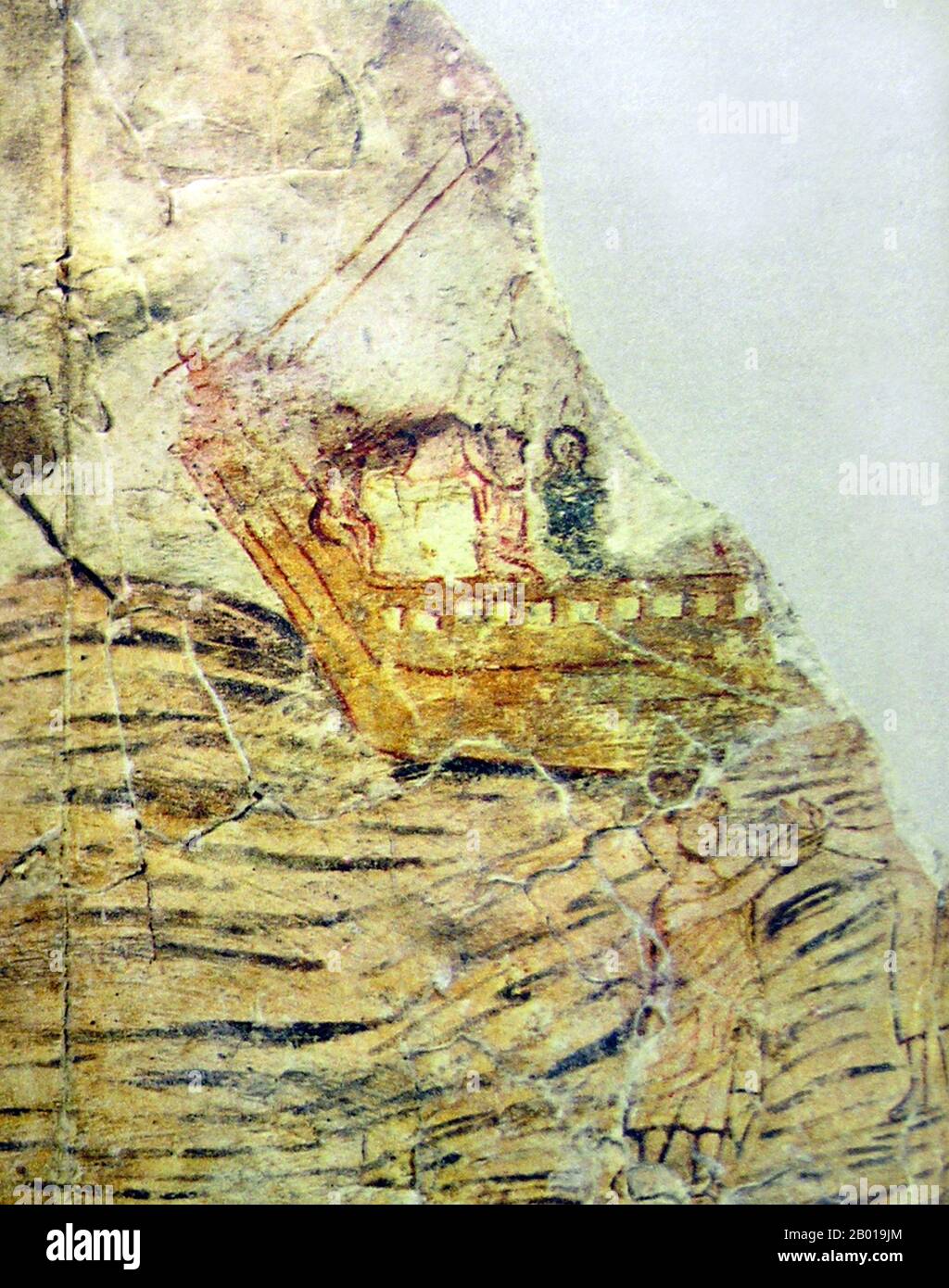Syria: Christ and Simon-Peter walking on water. Mural in the Doura Europos House Church, c. 235 CE. The Dura-Europos Church (also known as the Dura-Europos House Church) is the earliest identified Christian house church. It is located in Dura-Europos in Syria and dates from 235 CE. The building consists of a house conjoined to a separate hall-like room, which functioned as the meeting room for the church. The surviving frescoes of the baptistry room are probably the most ancient Christian paintings.

Image details
Contributor:
CPA Media Pte Ltd / Alamy Stock PhotoImage ID:
2B019JMFile size:
49.7 MB (1.7 MB Compressed download)Releases:
Model - no | Property - noDo I need a release?Dimensions:
3700 x 4693 px | 31.3 x 39.7 cm | 12.3 x 15.6 inches | 300dpiDate taken:
31 December 2005Photographer:
Pictures From HistoryMore information:
This image could have imperfections as it’s either historical or reportage.
The Dura-Europos church (also known as the Dura-Europos house church) is the earliest identified Christian house church. It is located in Dura-Europos in Syria and dates from 235 CE. The building consists of a house conjoined to a separate hall-like room, which functioned as the meeting room for the church. The surviving frescoes of the baptistry room are probably the most ancient Christian paintings. Murals include the 'Good Shepherd' the 'Healing of the paralytic' and 'Christ and Peter walking on water'. These are considered the earliest depictions of Jesus Christ. There were also frescoes of Adam and Eve as well as David and Goliath. The frescoes clearly followed the Hellenistic Jewish iconographic tradition, but they are more crudely done than the paintings of the nearby Dura-Europos synagogue.